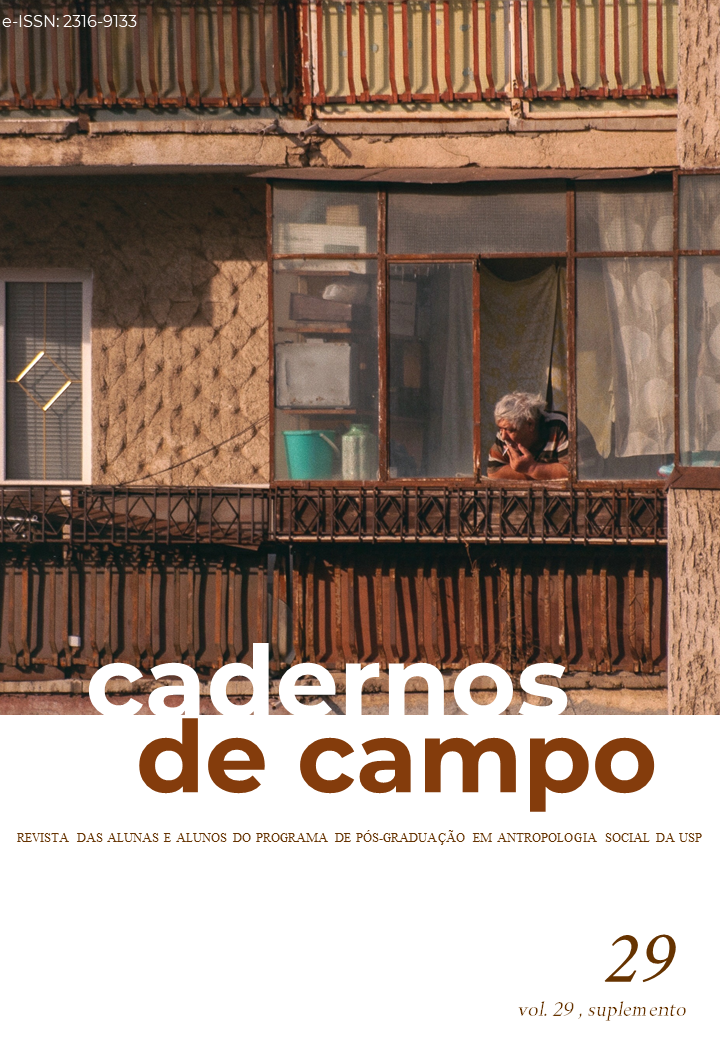The second round of exclusion
the case of low-income housing in Central Rio de Janeiro and the COVID-19 pandemic
DOI:
https://doi.org/10.11606/issn.2316-9133.v29isuplp255-265Keywords:
Social housing, State, Covid-19, Social distanceAbstract
The article presents some reflections denouncing the multiple processes of extreme vulnerability of families living in a low-income housing in the city center of Rio de Janeiro, aggravated by the COVID-19 pandemic. Using telephone conversations and whatsApp and information collected on social networks, we call attention to the processes management of production of precariousness and of the suffering by the state and the imposition of a life experience based on isolation within isolation, due to the absence of policies regular social services with sufficient coverage that transform beneficiary subjects into “patients of the state” as opposed to active citizens.
Downloads
References
AUYERO, Javier. (2011). “Patients of the state: an ethnographic account of poor people’s waiting”. In: Latin American Research Review, vol.46, n.1: p:5-29.
CARDOSO DE OLIVEIRA, Luís Roberto. (2010). “A dimensão simbólica dos direitos e a análise de conflitos”. In: Revista de Antropologia, v.53, n.2: p.451-473.
FASSIN, Didier. (1999). “El hombre sin derechos: una figura antropológica de la globalización”. In: Maguaré, n.14: p.179-190.
FASSIN, Didier. (2015). “Governing Precarity”. In: ______ (Ed.). At the Heart of the State: The moral world of institutions. London: Pluto Press: p.1-14.
FONSECA, Claudia. (2006). Os caminhos da adoção. São Paulo: Cortez.
HARVEY, David. (2020). Coronavirus e a luta de classes. Brasil: Terra sem Amos.
NEVES, Delma Pessanha. (2001). “A pobreza como legado”. In: Revista de História Regional, v.6, n.2: p.149-173.
NEVES, Delma Pessanha. (2011). “Habitantes de rua e vicissitudes do trabalhador livre”. Antropolítica, n. 29, p. 99-130.
OLIVEIRA, Marcos Marques de. (2003). “O projeto político-pedagógico da Terceira Via”. In: Revista de Ciência Política, n.14, p.15-22.
SANTOS, Boaventura de Souza. (2020). A cruel pedagogia do vírus. Coimbra: Almedina.
SARTI, Cinthia. (1996). A família como espelho. Um estudo sobre a moral dos pobres. São Paulo: Autores Associados.
THELEN, Tatjana; VETTERS, Larissa; BENDA-BECKMANN, Keebet von. (2014). “Introduction to stategraphy. Toward a relational anthropology of the state”. Social Analysis, vol. 58, n.3, p.1-19.
Downloads
Published
Issue
Section
License
Copyright (c) 2020 Cadernos de Campo (São Paulo, 1991)

This work is licensed under a Creative Commons Attribution-NonCommercial-ShareAlike 4.0 International License.
I authorize Cadernos de Campo Journal of Anthropology to publish the work of my authorship/responsibility, as well as I take responsibility for the use of images, if accepted for publication.
I agree with this statement as an absolute expression of truth. On my behalf and on behalf of eventual co-authors I also take full responsibility for the material presented.
I attest to the unpublished nature of the work submitted





